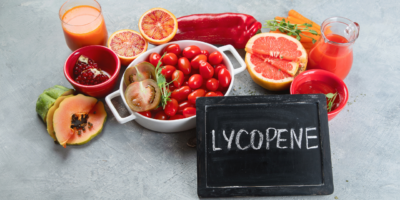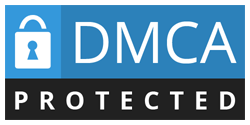Resveratrol is a plant active ingredient in the leading food sources including red wine, grapes, certain berries, and peanuts. If you’ve heard that red wine can help lower cholesterol, you’ve probably heard of resveratrol – the plant active ingredient in red wine. But in addition to being a healthy part of red wine and other foods, resveratrol has many health benefits. In fact, resveratrol supplements have been linked to many health benefits including protecting brain function and lowering blood pressure.


1. Top 4 health benefits of Resveratrol
1.1 Health benefits of Resveratrol: Good for heart health


✅ Due to its antioxidant properties, resveratrol may be a promising supplement to lower blood pressure. A 2015 review concluded that high doses may help reduce the pressure acting on the artery walls when the heartbeats. That type of pressure is called systolic and appears as a higher number in the blood pressure reading. Systolic blood pressure usually increases with age, because the arteries harden. When systolic blood pressure is high, it is a risk factor for heart disease. Resveratrol can accomplish this blood pressure-lowering effect by helping to produce more nitric oxide, causing blood vessels to relax.
✅ Additionally, animal studies show that resveratrol supplements can change blood fats in a healthy way (i.e., lower total cholesterol as well as LDL-cholesterol and increase HDL-cholesterol levels). Resveratrol appears to affect cholesterol levels by reducing the effect of an enzyme that controls cholesterol production. At the same time, as an antioxidant, it can also reduce the oxidation of “bad” LDL cholesterol. Oxidation of LDL contributes to plaque buildup in artery walls. In one study, participants given grape extract were fortified with additional resveratrol. After six months of treatment, their LDL decreased by 4.5%, and their oxidized LDL was reduced by 20% compared to participants taking the placebo.
1.2 Health benefits of Resveratrol: Resveratrol protects the brain


✅ Some studies suggest that drinking red wine may help slow age-related cognitive decline. This may be partly due to resveratrol’s antioxidant and anti-inflammatory activity. It seems to interfere with protein fragments called beta-amyloid, which are important for plaque formation that is a hallmark of Alzheimer’s disease. While this research is intriguing, scientists still have questions about how well the human body can use resveratrol supplements, which limits its immediate use as a supplement to protect the brain.
1.3 Health benefits of Resveratrol: Increase insulin sensitivity


✅ Resveratrol has been shown to have some benefits for diabetes, at least in animal studies. These benefits include increased insulin sensitivity and prevention of diabetic complications. One explanation for how resveratrol works is that it can block an enzyme from turning glucose into sorbitol. When too much sorbitol accumulates in people with diabetes, it can create oxidative stress that damages cells. Here are some benefits that resveratrol may have for people with diabetes:
- May protect against oxidative stress: Its antioxidant action may help protect against oxidative stress, causing several complications of diabetes.
- Help reduce inflammation: Resveratrol is thought to reduce inflammation, a major factor causing chronic illnesses, including diabetes.
- Activate AMPK: This is a protein that helps the body metabolize glucose. Activated AMPK helps keep blood sugar levels low.
✅ In an animal study, red wine and resveratrol were actually more effective antioxidants in diabetic mice than mice without it. The researchers say this compound could be used to treat diabetes and its complications in the future, but more research is needed.
1.4 Health benefits of Resveratrol: Resveratrol can inhibit cancer cells


✅ Resveratrol has been studied, especially in test tubes, for its ability to prevent and treat cancer. Here’s how resveratrol can protect against cancer cells:
- It can inhibit the growth of cancer cells: It can prevent cancer cells from multiplying and spreading.
- Resveratrol can alter gene expression: It can alter gene expression in cancer cells to inhibit their growth.
- It can have a hormonal effect: Resveratrol can interfere with the way certain hormones are expressed, which can cause hormone-dependent cancer to spread.
✅ Some preliminary studies suggest that resveratrol may have anti-cancer effects including stomach, colon, skin, breast, and prostate. In a 2016 animal study, for example, resveratrol inhibited the recurrence of ovarian tumors after chemotherapy. Published in Cancer, research shows that resveratrol inhibits glucose uptake by cancer cells (many glucose-dependent cancer cells are their energy sources). However, because studies so far have been conducted in test tubes and animals, more research is needed to see if this compound can be used to treat cancer in humans.
2. Foods that contain Resveratrol


- Red grapes: Grapes do not ferment to have this antioxidant. It is found in the skin of red grapes and many other nutrients, such as manganese and potassium minerals, vitamins K, C, and B1.
- Peanut butter: Peanut butter contains resveratrol (up to 0.13mg / cup). In addition, peanut butter is rich in niacin and manganese.
- Dark chocolate: In dark chocolate, resveratrol blends with other antioxidants and minerals, like iron, copper, and manganese.
- Blueberries: Blueberries do not contain as much resveratrol as grapes, but they are also rich in other antioxidants, rich in fiber, vitamins C, K, and manganese.
3. Notes when using Resveratrol
- Resveratrol may be safe when used in quantities in some foods. In particular, during pregnancy and lactation, the source of resveratrol is very important to the body. Therefore, you can get resveratrol from grape skins, grape juice, wine, and other food sources, but you should not drink wine during pregnancy and breastfeeding.
- Resveratrol may be safe when used in amounts found in food and when taking supplements up to 250mg daily for up to 3 months.
- Resveratrol may slow blood clotting. Theoretically, resveratrol may increase the risk of bleeding in people with bleeding disorders. Therefore, you should be cautious when used together with other anticoagulants such as aspirin or warfarin. Stop using resveratrol at least 2 weeks before a scheduled surgery.
- Resveratrol can act like estrogen. If you have any of the conditions that can get worse when exposed to estrogen, do not use resveratrol.
Recommended for you
🎁 NOW Supplements, Natural Resveratrol 200 mg with Red Wine Extract
✅ Since 1968 NOW has been a leader in the natural products industry. Even when healthy foods and natural supplements weren’t mainstream, we’ve never wavered from our mission – to provide value in products and services that Empower people to lead healthier lives. Resveratrol is a polyphenol naturally found in the skin of red grapes, certain berries, and other plants. Recent research has shown that Resveratrol can help to support healthy cardiovascular function. Resveratrol is best known for its cellular anti-aging properties, as well as for its ability to promote a healthy response to biological stress. Directions: As a dietary supplement, take 1 Vcap® daily.






Leave a Reply